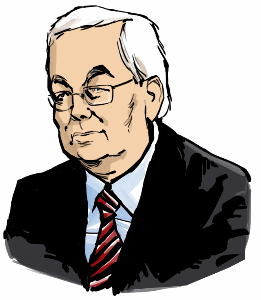© Gunnar Tómasson
7 November 2015
Introduction
It was by accident that I chanced upon the so-called Shakespeare Authorship Question in the mid-1970s. In the course of research into epistemology and scientific methodology in connection with Ph. D. thesis work at the Harvard Department of Economics, Francis Bacon’s New Organon caught my attention and I became interested in learning more about the author of this extraordinarily brilliant piece of writing.
In the course of background work on Bacon, I learned about his alleged involvement in the Shakespeare Opus. After further research I concluded that the allegation was most likely true. In the early 1980s the Harvard Magazine reported on a new book by Charlton Ogburn, The Mysterious William Shakespeare, which presented a very strong case for the authorship of Edward Oxenford, Seventeenth Earl of Oxford.
Ogburn’s book had a photocopy of the only extant reference by the Earl to Francis Bacon. The letter was addressed to Robert Cecil read as follows:
The Earl of Oxford’s letter
Cipher Value 511378
“My very good brother, yf my helthe hadd beene to my mynde I wowlde have beene before this att the Coorte as well to haue giuen yow thankes for yowre presence at the hearing of my cause debated as to have moued her M for her resolutione. As for the matter, how muche I am behouldinge to yow I neede not repeate but in all thankfulnes acknowlege, for yow haue beene the moover & onlye follower therofe for mee & by yowre onlye meanes I have hetherto passed the pykes of so many adversaries. Now my desyre ys. Sythe them selues whoo have opposed to her M ryghte seeme satisfisde, that yow will make the ende ansuerabel to the rest of yowre moste friendlye procedinge. For I am aduised, that I may passe my Booke from her Magestie yf a warrant may be procured to my Cosen Bacon and Seriant Harris to perfet yt. Whiche beinge doone I know to whome formallye to thanke but reallye they shalbe, and are from me, and myne, to be sealed up in an aeternall remembran&e to yowreselfe. And thus wishinge all happines to yow, and sume fortunat meanes to me, wherby I myght recognise soo diepe merites, I take my leave this 7th of October from my House at Hakney 1601. Yowre most assured and louinge Broother Edward Oxenford .”
The Earl’s “Booke from her Magestie” which he wished Bacon to “perfet” suggested that a plausible explanation for my own conclusion that Bacon most likely was involved in the Shakespeare Opus was that the Earl had passed to him a “booke from her Magestie” – now known as the Shakespeare Opus – to be “perfected”. The atrocious spelling of the Earl’s letter appears obviously contrived – as in need of some extensive “perfecting” work.
Francis Bacon’s literary legacy is most prominently on display in his Essayes, on which he worked for some 30 years, with the final version published in 1625. Bacon’s Dedication thereof reads as follows:
Francis Bacon’s Dedication
509741
“TO THE RIGHT HONORABLE MY VERY GOOD LO. THE DVKE of Buckingham his Grace, LO. High Admirall of England. EXCELLENT LO. SALOMON saies; A good Name is as a precious oyntment; And I assure my selfe, such wil your Graces Name bee, with Posteritie. For your Fortune, and Merit both, haue beene Eminent. And you haue planted Things, that are like to last. I doe now publish my Essayes; Which, of all my other workes, haue beene most Currant: For that, as it seemes, they come home, to Mens Businesse, and Bosomes. I haue enlarged them, both in Number, and Weight; So that they are indeed a New Worke. I thought it therefore agreeable, to my Affection, and Obligation to your Grace, to prefix your Name before them, both in English, and in Latine. For I doe conceiue, that the Latine Volume of them, (being in the Vniuersall Language) may last, as long as Bookes last. My Instauration, I dedicated to the King: my Historie of HENRY the Seuenth (which I haue now also translated into Latine) and my Portions of Naturall History, to the Prince: And these I dedicate to your Grace; Being of the best Fruits, that by the good Encrease, which God giues to my Pen and Labours, I could yeeld. God leade your Grace by the Hand. Your Graces most Obliged and faithfull Seruant, FR. St. ALBAN.”
Oxenford’s Letter + Bacon’s Dedication
511378 + 509741 = 1021119
The First Folio – A Book Perfected
The First Folio of Shakespeare’s plays was published in 1623, with two separate long Dedications. They are not shown here but their Cipher Values are as follows:
First Dedication
1184171
Second Dedication
1089901
Answer to Authorship Question
“There are more things in heaven and earth, Horatio, than are dreamt of in your philosophy,” Prince Hamlet advises his friend, Horatio. If, for the sake of argument, we assume that there may be some merit to the Prince’s confident assertion, then the following two Cipher Solutions would seem to be indirect proof that Prince Hamlet knew what he was talking about.
Co-Authors and First Dedication
1021119 + 20087 + 4335 + 129308 + 9322 = 1184171
Virgil’s Christ Prophecy etc.
20087 = Magnus ab integro saeclorum nascitur ordo. – The great order of the ages is born afresh.
4335 = Kristr – Christ in 13th Century Icelandic
129308 = Stay passenger …. Stratfordian puzzle at entry to Holy Trinity Church¹
9322 = William Shakespeare
Co-Authors and Second Dedication
1021119 + 1000 + 10148 – 3665 – 4127 + 7000 + 6100 + 52326 = 1089901
Saga Sonatorrek Myth
1000 = Light of the World
10148 = Snorri fólgsnarjarl – Snorri [Sturluson] hidden earl/Cosmic Creative Power
-3665 = Böðvarr – Beloved Son of Egill drowns
-4127 = Gunnarr – Other Son of Egill had died earlier
7000 = Microcosmos – Man in God’s Image – Metamorphosis of Egill’s Two „dead“ Sons
6100 = Sonatorrek – Difficult to avenge death of Sons
52326 = First verse of grieve-stricken Egill´s Sonatorrek Poem²
¹ Some 30-35 years ago, my wife and I visited Stratford.
On entering Holy Trinity Church, a challenge greeted us:
19949 = STAY PASSENGER WHY GOEST THOU BY SO FAST
22679 = READ IF THOU CANST WHOM ENVIOUS DEATH HATH PLAST
24267 = WITH IN THIS MONUMENT SHAKSPEARE: WITH WHOME
20503 = QUICK NATURE DIDE WHOSE NAME DOTH DECK YS TOMBE
20150 = FAR MORE THEN COST: SIEH ALL YT HE HATH WRITT
21760 = LEAVES LIVING ART BUT PAGE TO SERVE HIS WITT
129308
²
14939 = Mjök erum tregt tungu at hræra
11201 = eða loftvætt ljóðpundara.
13979 = Esa nú vænligt of Viðurs þýfi
12207 = né hógdrægt ór hugarfylgsni.
52326
Internet translation:
Much doth it task me my tongue to move,
Through my throat to utter the breath of song.
Poesy, prize of Odin, promise now I may not,
A draught drawn not lightly from deep thought’s dwelling.
***
Calculator for converting letters to cipher values is at:
http://www.light-of-truth.com/ciphersaga.htm

 Gunnar Tómasson
Gunnar Tómasson